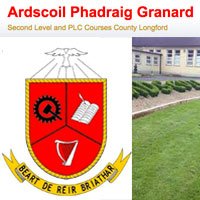Maybe you didn’t get a place at 3rd level this year, and are going to reapply next year. Or perhaps you’ve always wanted to go to 3rd level, but feel you are out of the education system too long and just might not be able for it. What if there was a course you could do which would give you that edge when reapplying, and prepare you for 3rd level into the bargain?
Well there is such a course and it’s called an Access/Foundation to 3rd Level Course, and virtually every University and Institute of Technology in the country offers one. The aim of such courses is to provide participants with the skills and knowledge necessary to undertake a full-time third level course. They also help the student to identify and choose the third level course best suited to their interests and abilities. In the case of some Universities (NUIG for example), the Access Course is also designed for people whose background education was limited by socio-economic circumstance and educational disadvantage.
What Will You Study on an Access/Foundation Course?
As these courses are primarily preparation for 3rd level courses, the core subject’s common to most will consist of:
Study Skills: Designed to equip students with the organisational and study techniques to succeed at 3rd level
Writing/Communications Skills: Designed to improve the student’s communication and writing skills for the purpose of assignments and projects
Information Technology: Designed to equip students with the basic IT skills necessary for study purposes
Almost all will include some element of educational guidance to help students plan their course and career goals. Some courses will also include Mathematics as a core subject, still others a project as part of the qualification process.
In addition to these invaluable skills which once gained, will make the whole transition to 3rd level process much easier, students also get to explore electives from a whole range of disciplines. If for example you are interested in Humanities, you may be given the opportunity to attend introductory lectures in such subjects as Philosophy, History, and Irish.
Types of Access/Foundation Courses
Access Courses for School Leavers: are designed for students who have a real desire to study at third level but may be unable to, due to social, financial or educational reasons. A minimum Leaving Certificate standard is usually required, and students who have completed a PLC are also eligible. Access courses for school leavers tend to be full-time and of 6 months duration, though this varies from college to college.
Access Courses for Mature Students: are based on the same criteria as those for school leavers, though the applicant must usually be over 21/22 on year of application. There are no specific entry requirements such as a Leaving Certificate, but the application process usually includes an interview and written piece of work. Access courses for mature students tend to be part-time and spread over an academic year.
Foundation Courses: are generally the same as Access Courses (confusing as it may seem), except students do not usually have to meet the socio economic disadvantage requirement. Primarily for adults, the general requirement is that students be over 21/22 years of age on year of application. Foundation courses again tend to be part-time and spread over an academic year.
Joint Foundation Courses: are usually run by a University and Institute of Technology together, and are specific to a certain area such as Science and Technology or Business and Commerce. They are geared towards students who have been out of the formal education system for a while, and who want to enter 3rd Level Studies in that specific discipline. For that reason, the core subjects will be related to that discipline. Attending a Joint Foundation Course in Science and Technology for example means you will study subjects such as Physics and Mathematics.
All of the above courses have one thing in common; their main purpose is to prepare you for 3rd level study. They are also a recognised entry requirement for full-time courses at the same institution. This means that if you successfully complete the course you can then apply for a 3rd level course at the same college.
As details such as attendance, course duration and entry requirements vary with each college, it is advisable to contact the institution you are interested in prior to applying. It is also a good idea to have a look at the 3rd level courses run by that college you to ensure they have a course you want to progress to. Don’t forget to take into account closing dates; while some Access Courses recruit in May, many of the Joint Foundation Courses may still be open.






